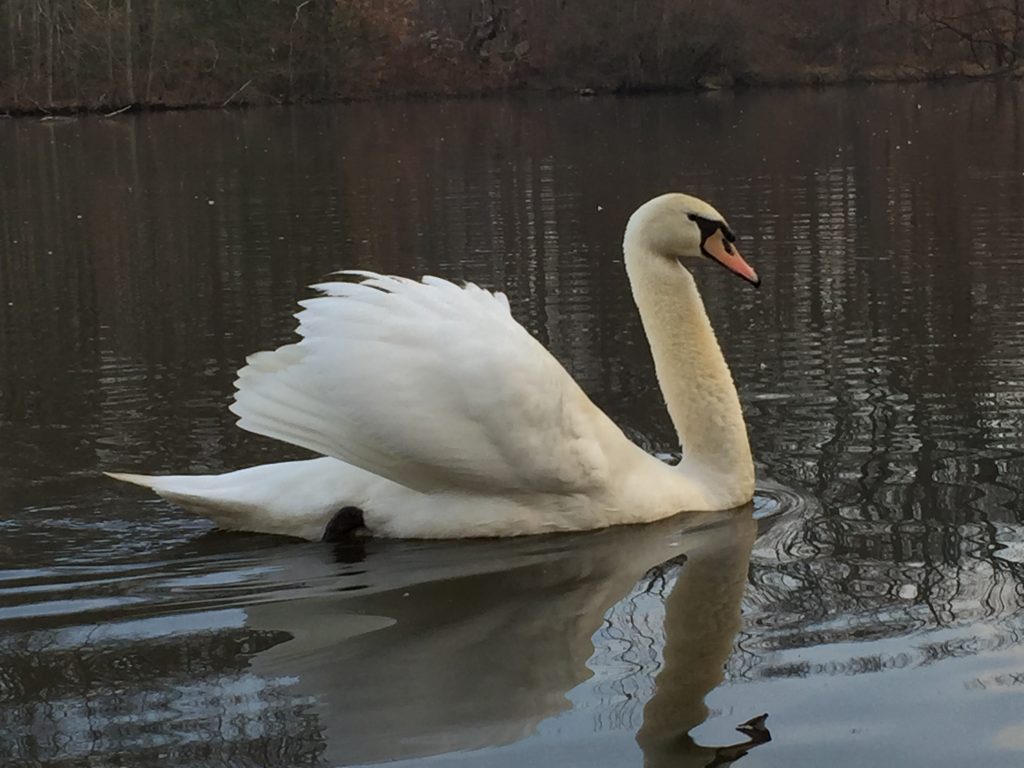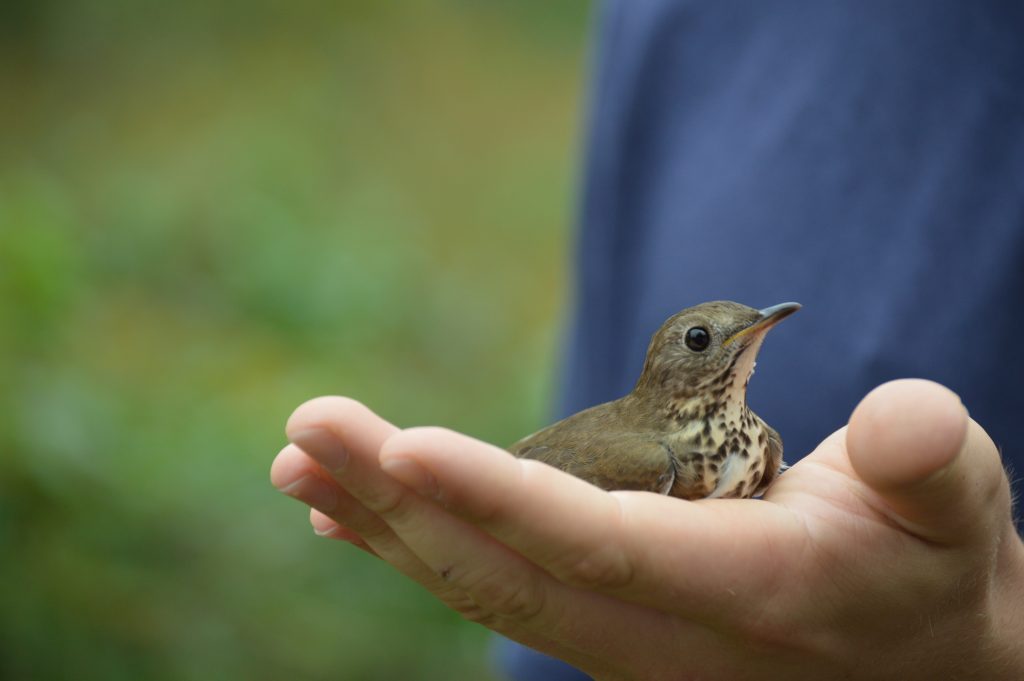
This fall, world scientists (11,000 of them to be exact) made a clear and unequivocal declaration in BioScience Magazine that planet Earth is in a climate emergency. The climate crisis is closely linked to excessive consumption of the wealthy lifestyle, and climate tipping points are arriving faster than anticipated. Major change is needed at all levels of society, and “help planet Earth” might be the most important New Year’s resolution to add to your list.
This sounds like a lofty task that could induce Ostrich Syndrome of sticking our heads hopelessly into the sand. Especially since this warning follows the article in Science declaring that we have lost 30% of our birds in the past 50 years. Do not despair: there are many personal changes we can all make in our daily lives, and by focusing on birds we can make the overall problem seem more manageable and the solution more tangible. When we help birds, we help the world.
Following represents a list of ideas to consider, realizing we cannot be perfect. But we can certainly be better.
Reduce Carbon Emissions
While most of us cannot directly reduce subsidies to fossil fuel corporations as the Alliance of World Scientists suggests, we can reduce our carbon emissions personally. Planning a vacation for 2020? Try exploring a place closer to home rather than one that requires global air travel. Buying a new car? Choose brands with low emissions or electric if you can afford it. Look into changing your home energy supplier to renewable energy.
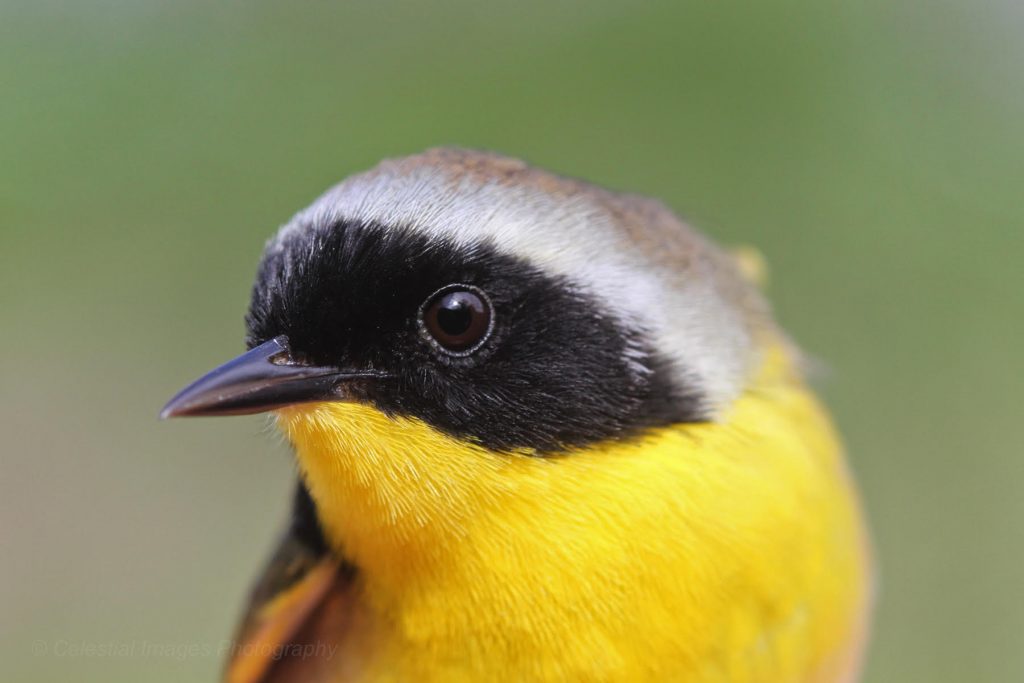
Studies show that climate change is playing a role in bird declines. As the planet warms, bird ranges are shifting north often into less ideal habitats. Some neotropical migrant species in particular have been hit hard because their day length-derived arrival dates are now out of snyc with temperature-derived North American insect pulses.
Check out the official climate emergency warning.
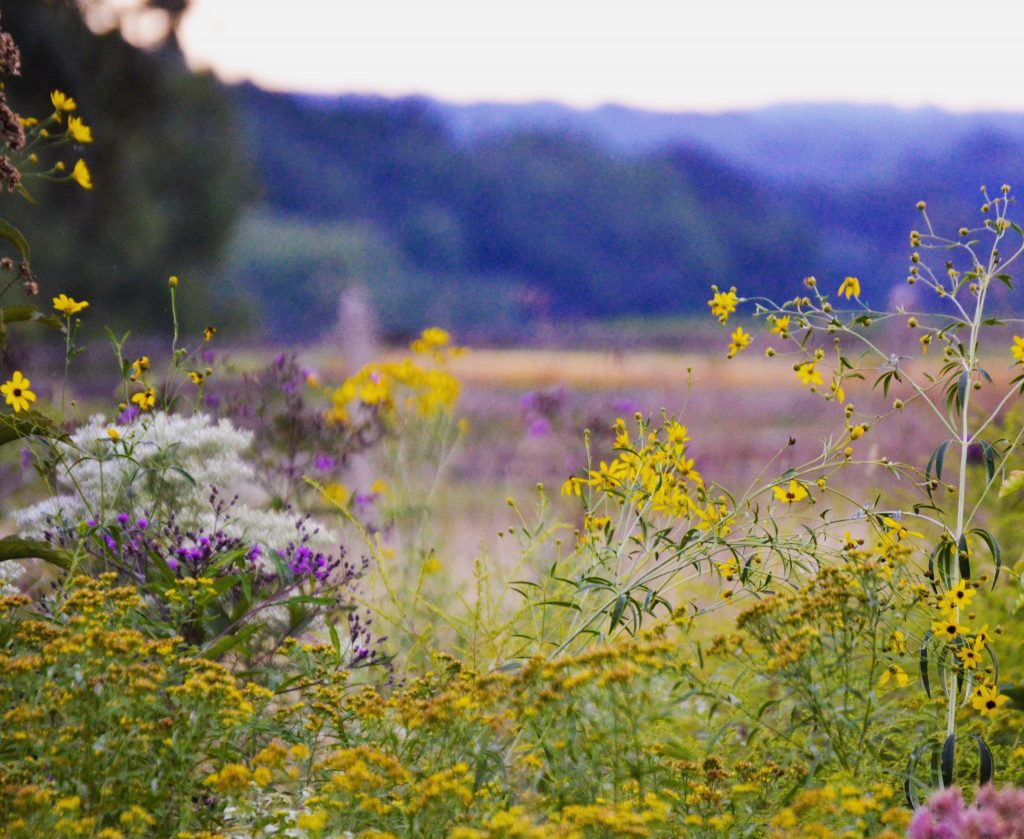
Plant a Native Wildflower Garden
With lawns covering over 40 million acres of the U.S., it is paramount that we begin to see these lawns as places where conservation can happen. Devoting part of your manicured lawn to a natural meadow habitat with native grasses and flowers can greatly increase diversity of insects and birds, eliminate the need for pesticides, and reduce the need for watering (most native plants once established can mine groundwater). These native wildflower gardens only require mowing once a year in early spring, thus decreasing carbon emissions associated with repetitive mowing.
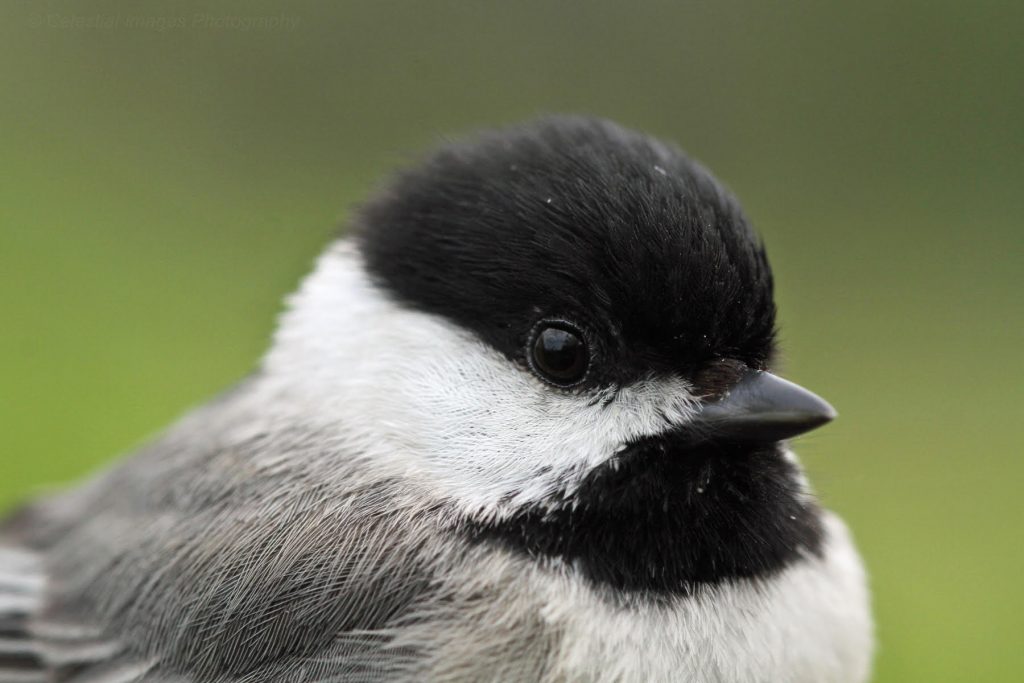
Doug Tallamy, author of Bringing Nature Home, proved that chickadees in a suburban neighborhood of mostly lawn and non-native trees and shrubs actually experienced diminished breeding success. Most of the nutrient-rich caterpillars they need to feed their young are located on native plants; Tallamy’s lab suggests that even an imperfect mix of 70% native plants and 30% non-native is enough to bolster healthy populations of breeding birds in our neighborhoods.
Visit the Native Plant Finder to learn which butterflies and moths are supported by different native plant host species in your area.
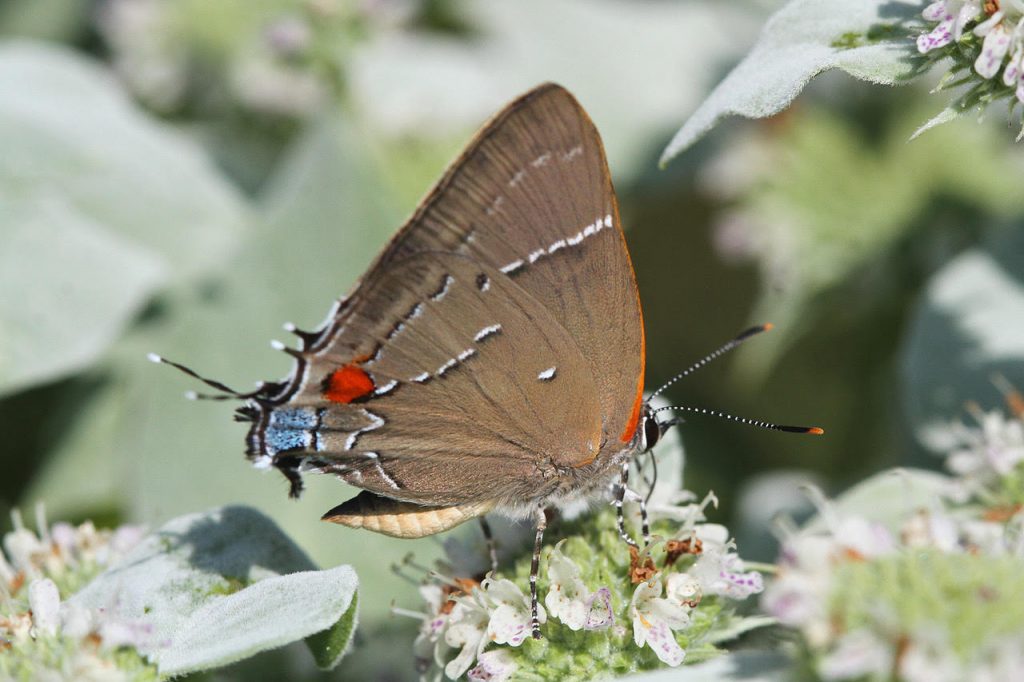
Support Healthy Food Systems
Reducing the global consumption of animal products, especially large livestock, can significantly lower greenhouse gas emissions. Enormous expanses of natural ecosystems are used for growing livestock feed. Eating a plant-based diet not only improves human health but it also frees up cropland for growing human plant food as well as for restoring natural habitats for birds, wildlife, and ecosystem services (e.g., carbon sequestration).
You can also support small farms like Rushton Farm that employ regenerative agriculture. More than simply organic, regenerative agriculture is a conservation and rehabilitation approach to farming and food systems. It’s partnering with nature to regenerate soil with smart crop rotation, increase biodiversity with habitat borders, improve watersheds by eliminating chemical inputs, and enhance ecosystem services like pollination by native bees. Basically, it’s the way farming was done prior to agricultural intensification.
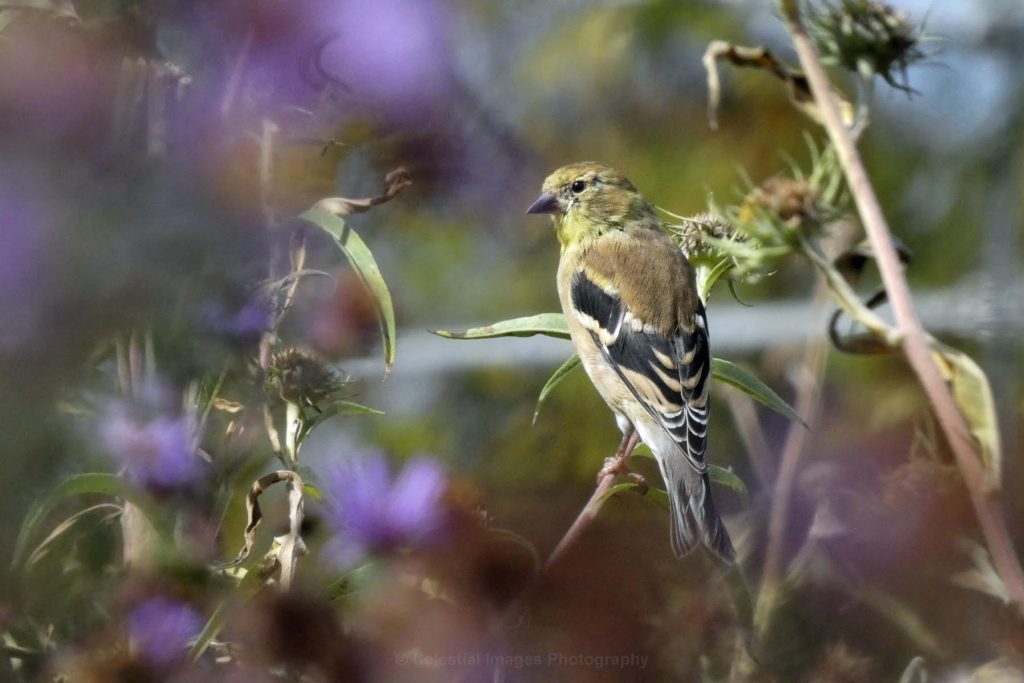
Agricultural intensification has been linked to the worrisome 50% decline in American grassland bird populations since 1970. Worldwide, this sect of birds is dramatically declining in part because of farmland habitat degradation but also because of controversial insecticides previously thought to only affect bees.
A recent study on wild White-crowned Sparrows used Motus tracking technology to understand the detrimental appetite-suppressing effects of these neonicotinoids on migratory birds. Read more about the fascinating study: Insecticides Shown to Threaten Survival of Wild Birds.
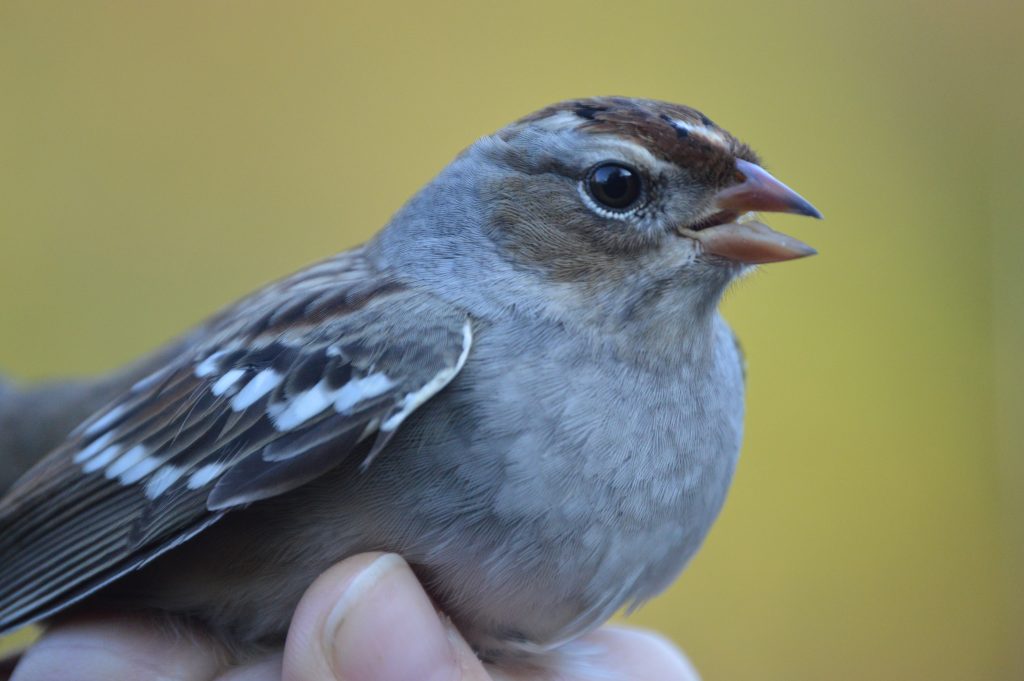
Buy Shade Grown Coffee
Coffee traditionally grows in harmony with nature in the understory of tropical forests. This means that it is an agricultural product that can actually support a diversity of habitat structure that is perfect for migratory birds that overwinter in the tropics like our beloved Wood Thrush and Baltimore Orioles.
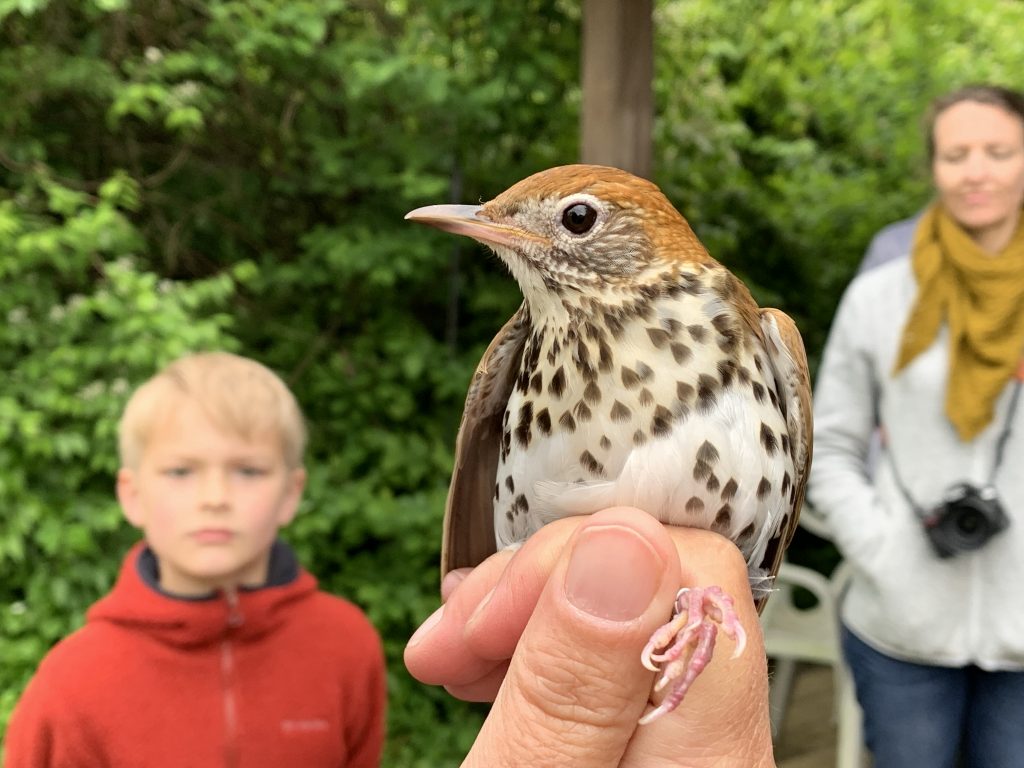
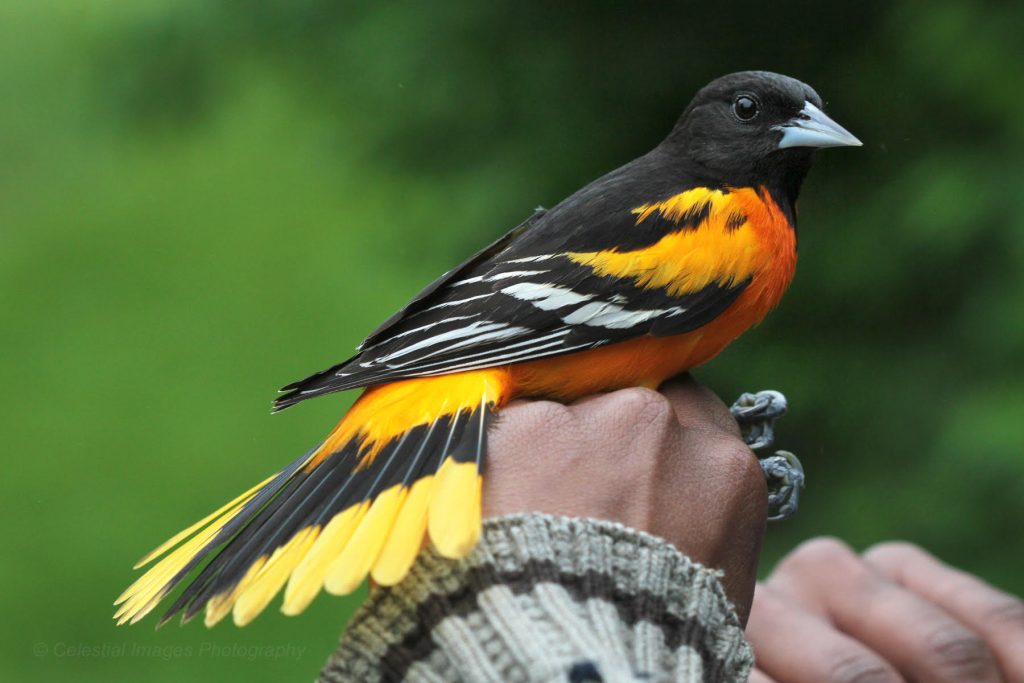
Unfortunately, much like the rest of modern agriculture, we have found a way to intensify this crop’s production by clear-cutting forests and growing it in the sun. Full-sun coffee farms make up over 76% of the total coffee cultivation area.
You can support family owned coffee farms that are doing it responsibly and preserving forests by looking for the Bird Friendly certification, a science-based certification that is run by the Smithsonian Migratory Bird Center of the Smithsonian Institution. Bird Friendly requires farmers to plant a diversity of trees, prioritizing native ones that have the highest value (in insects) to birds.
Read more about the intricacies of the relationship between birds, coffee, and global warming: Newfoodeconomy.org.
And then order some Bird Friendly coffee from our friends at Golden Valley Farms Coffee Roasters in West Chester, PA!
Switch to Sustainable Toilet Paper
The boreal forest of Canada has been dramatically affected by America’s love of luxury toilet paper brands that use virgin pulp. The boreal forest covers 60% of Canada, absorbs significant amounts of carbon dioxide from the atmosphere, and has been called the Songbird Nursery of North America as 3 billion birds of over 300 species flock there for breeding each year. An area the size of Pennsylvania has already been wiped out of this majestic forest.
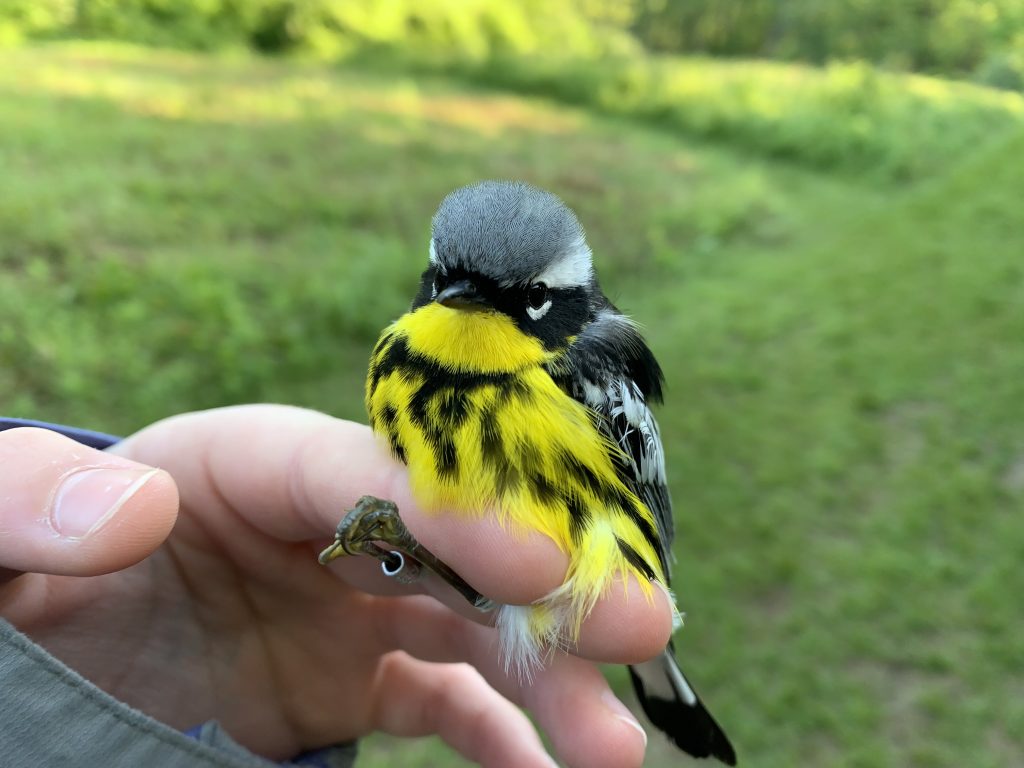
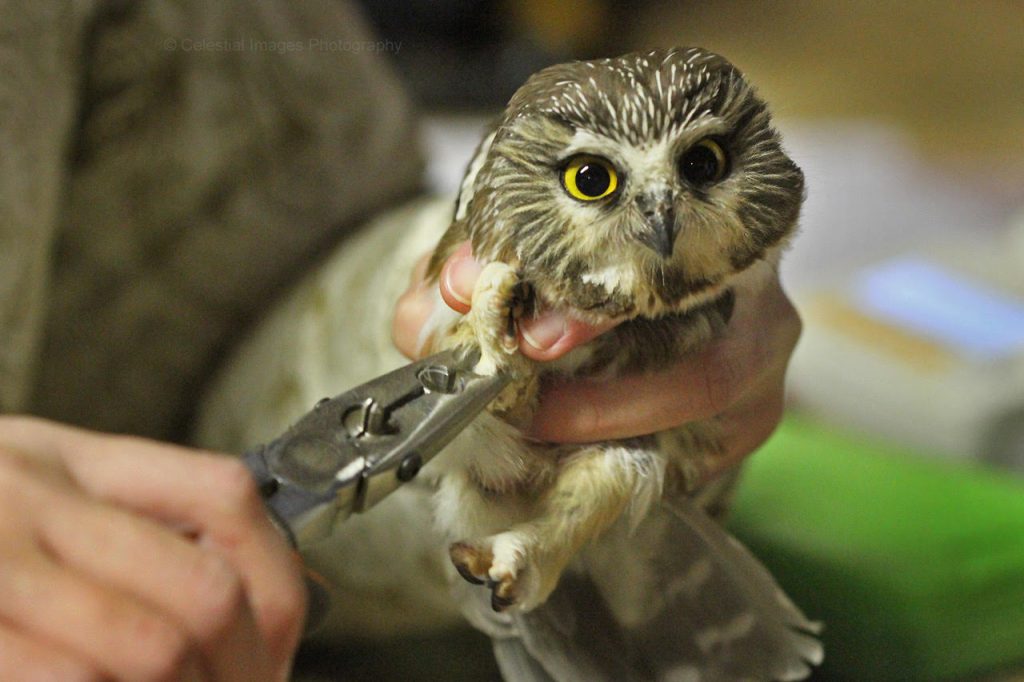
There are many toilet paper brands that now use recycled paper and even bamboo, which is still far more sustainable than pulp from trees (and a little softer than recycled paper for those transitioning from pillow soft virgin paper). Who Gives a Crap and Seventh Generation are popular brands to try out.
Keep Cats Indoors
Hundreds of millions of birds die each year from window collisions, but there is another human-induced threat that is even more sinister: cats. American Bird Conservancy states that cats kill approximately 2.4 billion birds each year in the U.S. alone, making them the number one human-caused threat to birds (next to habitat loss). We need those 2.4 billion birds, now more than ever, to help keep insect populations in check, which keeps forests healthy and mitigates global warming.
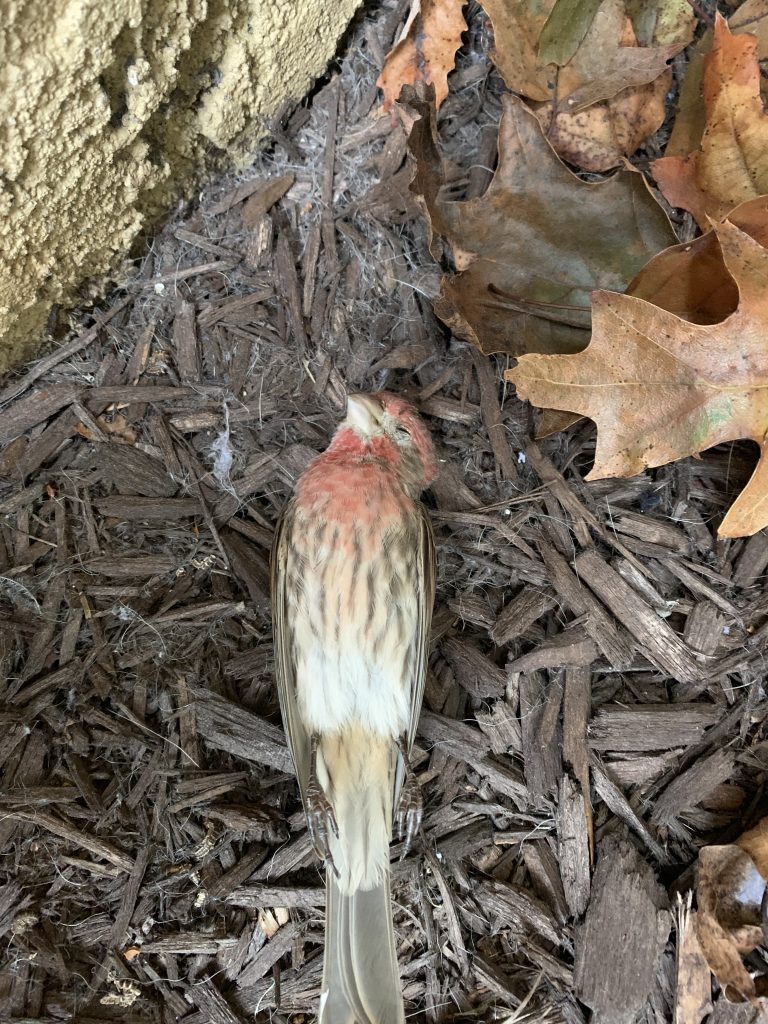
When allowed to roam outside in natural areas, cats are an alien invasive species that wreak havoc on bird populations that are already stressed due to habitat loss and climate change. When kept inside, cats are loving pets that live longer, healthier lives.
Looking for some interesting reading for 2020? Check out Cat Wars, by Pete Marra, which traces the historical ties between humans and cats and tackles this complex global problem.
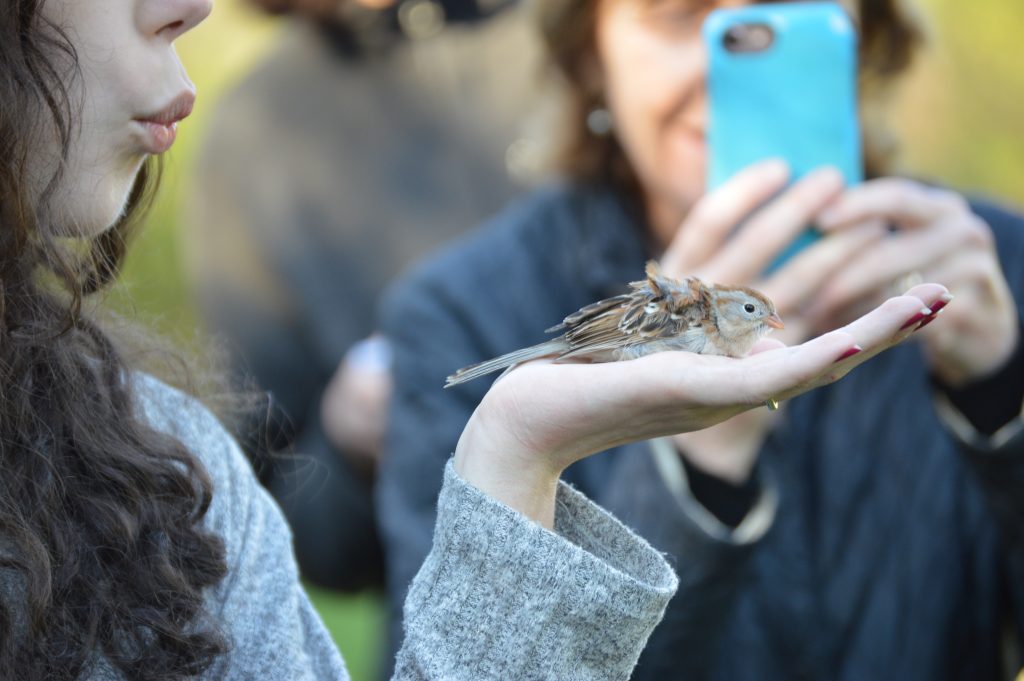
Engage in Political Activism
According to Audubon science, two-thirds of all North American bird species are at risk of extinction without immediate conservation action. Bird conservation legislation can help prevent unnecessary bird mortality. Industry, for example, plays a significant role in bird deaths: annually, tens of millions of birds collide fatally with power lines and communication towers, 500,000 birds mistake open oil waste pits for lakes, and over 1 million birds perish from accidents like the 2010 Deepwater Horizon oil spill.
The current administration has weakened important, long-standing legislation like the Migratory Bird Treaty Act, which held industry responsible for minimizing bird mortality (e.g., keeping covers over oil waste pits). Fortunately, a bi-partisan bill has just been introduced: the Migratory Bird Protection Act (MBPA). This bill will essentially revoke the free pass to incidental bird killing and create a permitting system for businesses to reduce preventable bird mortality.
Your voice can make a difference. Urge your representatives to co-sponsor this important bill on American Bird Conservancy’s action page.

Preclude the Canary’s Swan Song
Birds, long revered as the canary in the coal mine, are chiding us to make some big changes this year. We must work together as fellow inhabitants of this incredible planet to preserve its beauty. There are simply too many of us now for anyone to luxuriate in blissful naivete. The scientists have spoken. The canaries have sung.
Let’s be better humans this year, so that we may never hear the swan song of our canary.
There’s a lot going on in the woods,
Blake
